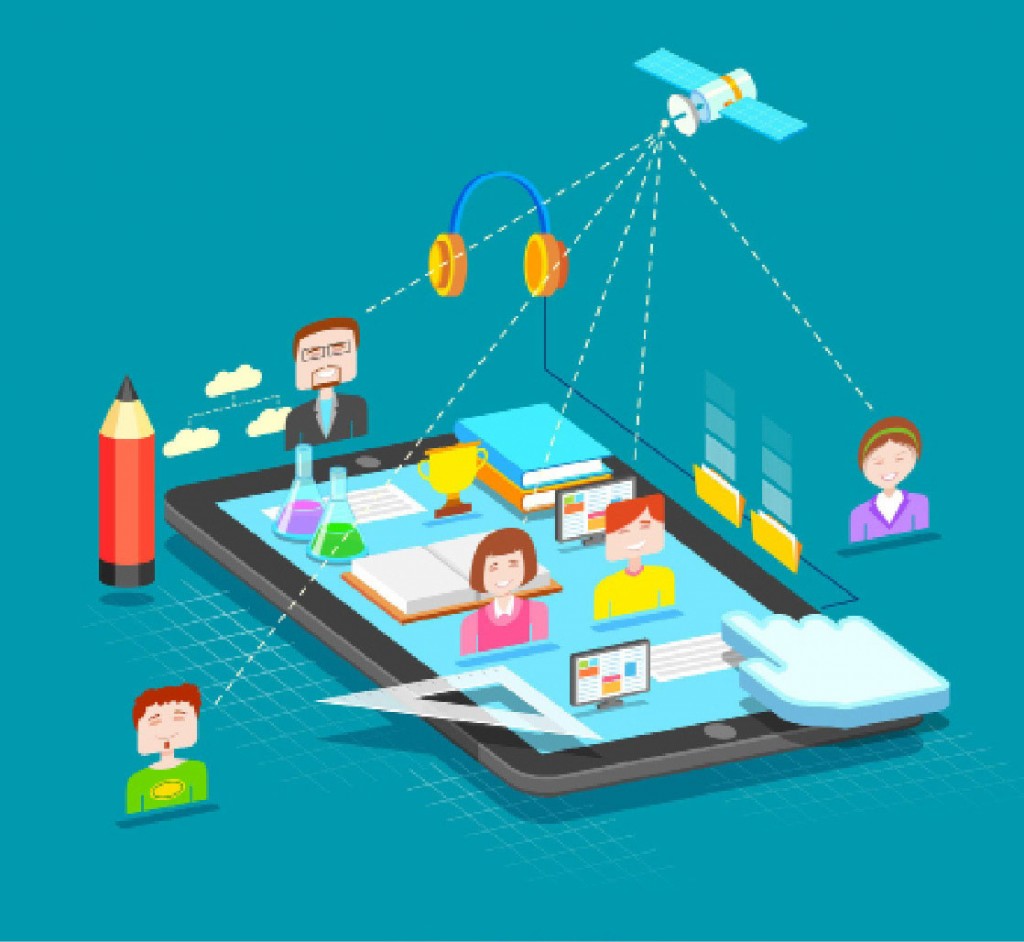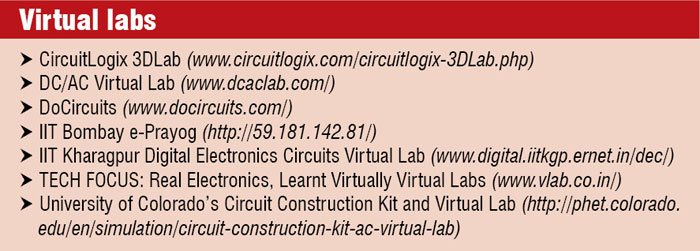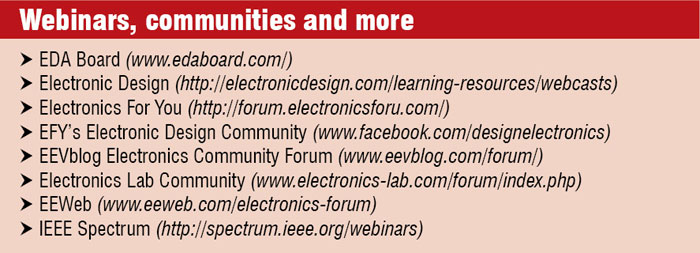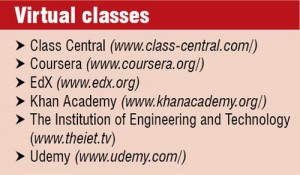Imagine you could go to a real school, college or other learning centre to study electronics; what facilities would you get to achieve your learning target? Lectures, course materials, well-equipped labs, a competitive peer group and opportunities like workshops, seminars and contests. It might delight you to know that all these are available online these days. Whether you wish to learn the basics or top-up your skills in specific areas, it is possible to do so from the comfort of your own home—if only you have the time and dedication.
Deciding what you want
Once you have decided on learning something new, basic or advanced, you will realise upon your first Web search that there are too many opportunities waiting for you out there. You can opt for a structured online course from a reputed university and work your way through it, or choose random resources from here and there to learn and practice what you learnt. You will find free as well as paid resources online.

What is important is that you first join a forum of like-minded people with similar learning goals and spot resources recommended by users. Make sure to check out each resource to decide if it is worth your time. If you are going to pay for something—courseware, tool or lab—make sure to read up a substantial number of reviews before signing up for it.
Your chance to sit in a classroom at any age
For free online courses, you need to look no further than edX, a non-profit initiative by Harvard and MIT. A reliable source of interactive online classes and massive open online courses (MOOCs) from the most reputed universities in the world, edX is not just for amateurs and students but also for experts who have always wished for a chance to experience the Ivy League. On edX, you will find courses from MITx, HarvardX, BerkeleyX, UTx and many other reputed organisations.
While you can find courses on almost all subjects, readers of this magazine might be especially interested in a 16-week free course on circuits and electronics (6.002x) taught by Prof. Anant Agarwal, president of edX and professor of electrical engineering and computer science at MIT, along with other eminent faculty. The course introduces engineering in the context of lumped circuit abstraction.


Most of the top universities also have their own online MOOC repositories to break barriers and let everybody learn. You may check out MIT’s RSS feed (http://ocw.mit.edu/help/rss/) and Carnegie Mellon’s free courses (http://oli.cmu.edu/), or if you are keen on learning about artificial intelligence (AI), then Stanford Engineering Everywhere (http://see.stanford.edu/) comes highly recommended.
Udemy is another wonderful website that not only allows you to learn but also build courses for others to learn from. It has over 25,000 courses and six million students. So if you are an expert in any stream and wish to teach the same to others, do your bit and upload a free course.
Experiment to your heart’s content
Labs are an integral part of learning, especially when it comes to engineering and vocational education.
Virtual Labs, an initiative by Ministry of Human Resource Development under National Mission on Education through ICT is a very appreciable indigenous initiative that aims to provide remote access to virtual lab facilities to schools and other vocational trainers, so that everybody, in any part of the country, gets access to advanced learning tools.

While a number of labs in varied streams are available, some of those pertaining to electronics and communications include interactive design and test, microwave, wireless, electromagnetic, queuing networks modelling, advanced communications, hybrid electronics, transducer and instrumentation, very large scale integration (VLSI) design and verification, microcontrollers, signal processing, speech signal processing, fibre optics and other labs relevant to current-generation electronics education.
Several IITs, Amrita University, IIIT Hyderabad and other institutions are contributing their resources and efforts to Virtual Labs project on an ongoing basis. You can register for free with IIT Bombay’s e-Prayog or IIT Kharagpur’s Digital Electronics Circuits Virtual Lab to try your hand at experiments that reinforce your theoretical learning.
Take some quick lessons and get your doubts answered

When you do not have time for a full course and just need a quick how-to, overview or jargon teardown, you have many options, notably articles, webinars and forums. In many cases, a webinar from a reliable source is more effective than reading a dozen articles because these are usually conducted by experienced people who know what you need to know.
It is also important that you be a part of online communities and forums. This will help you to understand the latest trends as well as get your questions answered, whenever required. Remember that you can get your doubts cleared only if you are active on the forum, and help others by sharing your knowledge too. Forums and online communities will also help you find collaborators for your projects, if needed.
While we have mentioned some general forums and communities in the box above, it is advisable to join forums and communities specific to your areas of interest. This way you can gain advanced knowledge and in-depth responses.
Whether you wish to learn the basics, acquire a new skill, develop a product or even start a company, resources are aplenty today. Just ensure that you are completely dedicated to your undertaking and are willing to put in the required time and effort. You will surely taste the sweet fruit of success.






